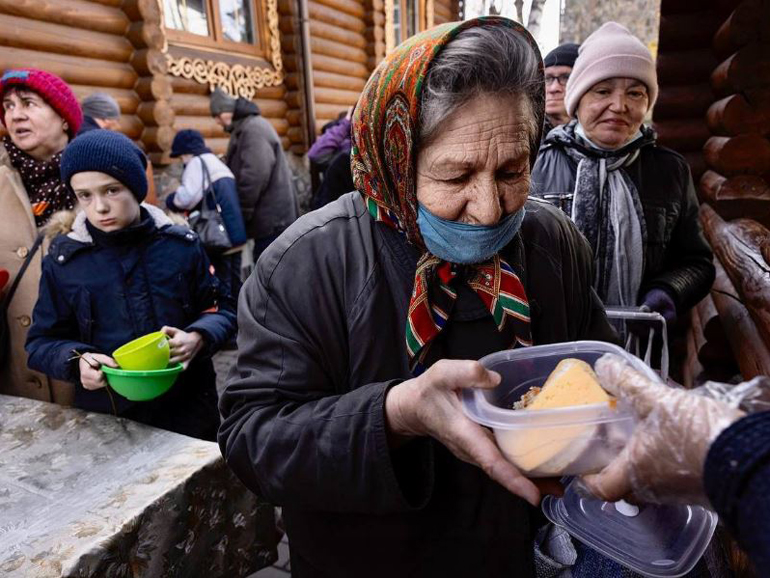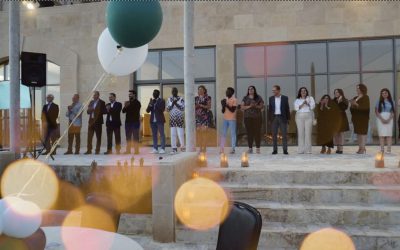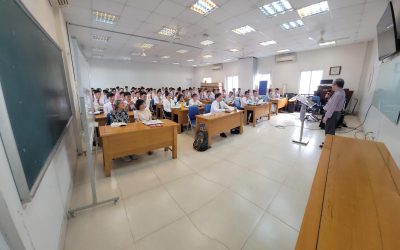When the war started, seminary leaders in Ukraine understood that meeting immediate relief needs was not mission drift; it was the right response for the church to care for people. Their existing leadership positions allowed them coordinate and provide relief efforts quickly and with strong credibility. They wasted no time in serving their communities in this missional way.

A church provides humanitarian aid in Kyiv. Photo by Paula Bronstein (war.ukraine.ua).
Now, even while still in wartime, Church and seminary leaders want to re-engage their first calling: theological education and the formation of Christian leaders. How can the Church in Ukraine rebuild? Where will leaders come from to fill the gaps left by pastors and faculty who have been lost? What will an effective witness look like in the present circumstances and in the future?
As Taras Dyatlik, ScholarLeaders International Engagement Director and relief work coordinator, writes:
Our network, as a result of the faithful ministry of Overseas Council and VSI [Vital SustainAbility program] of ScholarLeaders, prepared our schools literally to meet and endure the consequences of the war by staying in the country regardless of all the challenges and serving the church and nation. Theological education did not collapse but is (humbly speaking) flourishing. Maybe not in a way we would want to see it, but flourishing for the Church, the Kingdom of God, for sharing the Good News in practice. … yes, we are a little bit crippled mentally, spiritually, and emotionally, but we are called to do, even if some days it is only a couple of the mosquito steps, but still towards the Mission that does not change.
Christian leaders continue to participate in relief efforts; yet at the same time, they want to move from operating in crisis mode to realizing a more strategic approach for theological education. This involves establishing a new alliance to serve theological education in areas that are geographically and missionally aligned (including schools in Ukraine, the Baltics, the rest of Eastern Europe, and Central Asia). They are also working to advance research on issues facing the church and society that have been intensified by the war:
-
How can Ukrainians learn from other people groups who are working for peace and reconciliation?
-
How will the Church serve people who have been injured in the war?
-
How do Christian and national identities intersect?
These questions are just a hint of what Ukrainian Church leaders are actively thinking about. The Overseas Council network (reSource’s global partners) and ScholarLeaders International are committed to come alongside in this hopeful and deeply challenging work. We would be glad to chat with you if you’d like more information or if you’d like to give to this work.
United World Mission President John Bernard and Overseas Council Theological Education Consultant Helga Dyatlik express their gratitude for support given, asking for continued prayer for Christian leaders as they serve, and for the rebuilding of theological education to equip leaders in Ukraine.




0 Comments